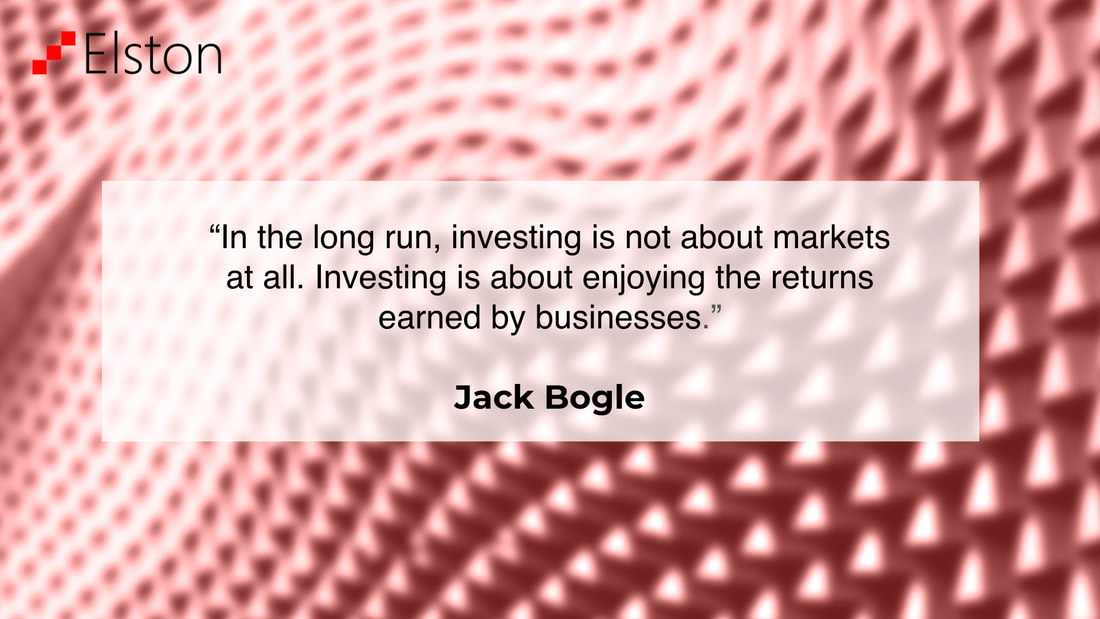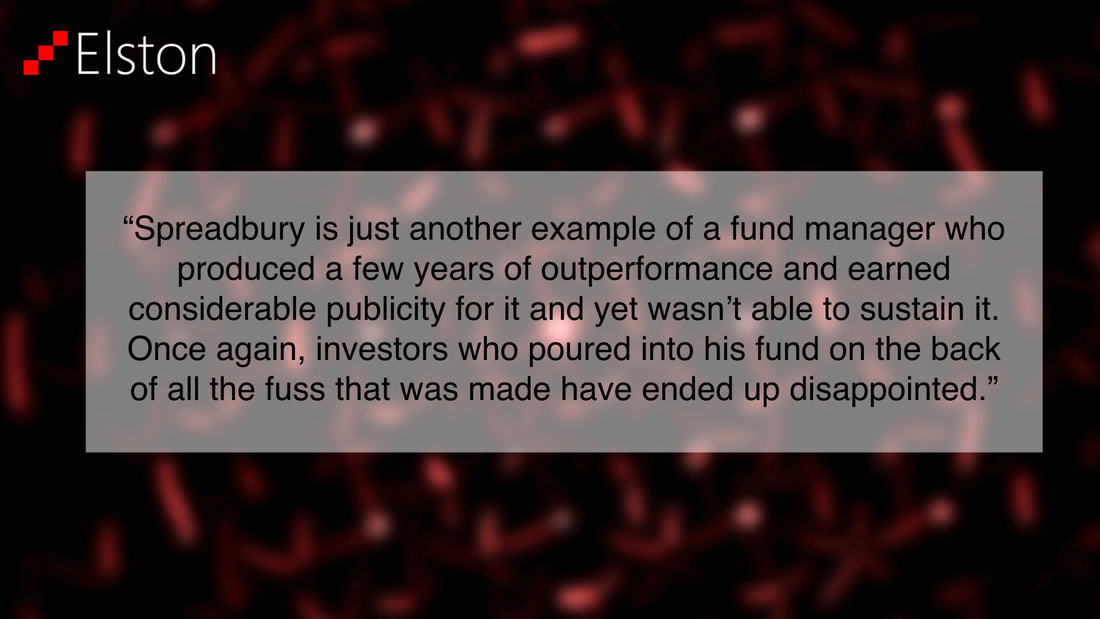|
Think of investing, and most people think of the financial market. They think of share prices going up and down, bull runs and bear markets, spectacular successes and the occasional market crash.
The media is partly responsible. Journalists are constantly looking for stories. They have a vested interest in making investing seem exciting. That’s why they love the drama of the stock market. Every day, newspapers publish the prices of hundreds of securities, and there are regular updates on radio and television on the latest news from the trading floor. The impression given is that investors need to keep up with the markets, and what the experts are saying about them, constantly. The truth, however, is rather more prosaic. Successful investing is essentially very dull. It’s about filtering out the noise and focusing on a few fundamentals — ensuring you’re taking an appropriate amount of risk, keeping your costs low and diversifying broadly. Apart from rebalancing your portfolio every year or so, there really isn’t anything else to do. In The Little Book of Common Sense Investing Jack Bogle wrote that “the stock market is a giant distraction from the business of investing”. In the long run, he explained, “investing is not about markets at all (but) about enjoying the returns earned by businesses.” This is an altogether better way to think about investing. At a basic level, it’s about sharing in the profits of capitalism. Companies distribute those profits in the form of dividends, generally paying higher dividends when they’re doing well, and lower dividends when they’re not. The price of shares in a particular firm tends to go up when the market expects its profits to rise, and down when profits are expected to fall. That’s why the stock market constantly fluctuates, and why, in the short term, it can be extremely volatile. Sensible investors, however, take a long-term view. No, they’re not blind to risks such as global warming, terrorism and the threat of nuclear war. But they believe that, in general, capitalism is a system that works and that fairly rewards those who invest in in. They believe in the resilience of human enterprise and that, whatever happens in the next 30, 40 or 50 years, there will still be a demand for goods and services, and that companies will continue to make profits. You should see investing, then, as claiming your rightful share to the proceeds of global capitalism. Remember, though, that there are all sorts of third parties — fund managers, brokers, investment platforms and so on — who would like to grab part of your share for themselves. Warren Buffett told a story in his 2006 letter to Berkshire Hathaway shareholders, which every investor should read. It concerns the Gotrocks family, which owns all of corporate America, and receives the full value of the profits earned by those companies. Then a group of people, which Buffett calls the Helpers, offer to assist some family members to outsmart the others, "for a fee, of course". So, while the total profit earned by the Gotrocks family doesn't change, they don't get it all, having to pay some to the Helpers. The profit of the companies owned by the Gotrocks family doesn't increase, but with more and more Helpers, charging more and more fees, the Gotrocks actually end up worse off. Buffett’s right. There are too many Helpers in the investing industry. By removing multiple layers of “help”, which you can do by simply using low-cost index funds, you’ll end up keeping a much larger share of your investment returns for yourself. So, go ahead. Claim your share of the proceeds of capitalism for yourself. It’s there for the taking — if only you can keep a long-term focus and resist the temptation to get caught up in all that market excitement.
One of the many reasons for indexing is that it eliminates, at a stroke, one of the biggest risks that active investors face, namely manager risk. We’ve explained many times how the odds of beating the market through active fund selection are heavily stacked against you. Speaking in the online documentary Investing: The Evidence, Dr David Blake from the Pensions Institute says this: “The evidence shows, both for the UK and the US, that around 1% (of funds) outperform in the long term on a risk- and cost-adjusted basis. 99% of fund managers deliver negative value-added once you take into account the fees that they charge.” All right, let’s say you’re feeling lucky, or else you don’t believe Dr Blake when he says that picking “star” managers ex ante is “impossible”. Let’s just imagine, for a moment, that you do possess a skill that has eluded every investor, professional or otherwise, to date — namely the ability to identify in advance, accurately and consistently, that tiny proportion of future outperformers. Even then you would still be relying on factors that are totally beyond your control. Let’s take, for example, the bond fund manager Ian Spreadbury, who has just announced his retirement after more than 40 years in the City of London. (Incidentally, the case for active management in fixed income is even flimsier than it is for equities. Because bond returns are generally modest, the costs involved in using an active manager almost always cancel out any outperformance they’re able to deliver. But we’ll leave that to one side.) The biggest problem active investors face is distinguishing luck from skill. In a paper released in 2002, the afore-mentioned David Blake and his colleague Allan Timmermann demonstrated that it takes 22 years of performance data for a test of a fund manager’s skill to have 90% power. Ian Spreadbury began his working life as an actuary. It wasn’t until 1985, nine years after graduating, that he moved into fund management with Legal and General. By Blake and Timmermann’s calculations, it wouldn’t have been until 2007 that you could say, with 90% confidence, that Spreadbury was genuinely skilled, as opposed to just plain lucky. By that time, Spreadbury had spent 12 years with his next employer, Fidelity. So, how has Spreadbury’s flagship Fidelity MoneyBuilder Income fund performed since 2007? Answer: it has consistently underperformed the benchmark index. In other words, you would have been better off investing in a low-cost passive fund instead. What’s interesting is that throughout that whole period, Fidelity MoneyBuilder Income has been highly rated by the ratings agencies. Brokers like Hargreaves Lansdown have also touted the fund in the media, predicting that Spreadbury would soon return to his winning ways. As things turned out, it didn’t happen — and nor will it happen now that Spreadbury has decided to call time on his career. We don’t mean to single out Spreadbury for criticism. He has, in fact, performed less badly, on average, since 2007, than his peers. But we do mean to call out those who advocate switching in and out of different active funds as a sensible investment strategy. Spreadbury is just another example of a fund manager who produced a few years of outperformance and earned considerable publicity for it and yet wasn’t able to sustain it. Once again, investors who poured into his fund on the back of all the fuss that was made have ended up disappointed. Manager risk is a very real risk. Even if a manager is skilled, and that’s a huge assumption to make, there are so many unknowns. Here are just a few of them: Will they be able to replicate their past success in the future? Will they struggle, as many do, as the size of the increases? Will they charge higher fees when they outperform? Will you have the discipline to stick by them during inevitable periods of prolonged underperformance? Will they move to a different fund? And in that case, should you follow them? Will they succumb to a serious illness or critical injury? Will they really want to carry on working into their 60s, by which time they’ll be financially very well off? As an active investor, you leave everything to chance, and to succeed at it, you need everything to go your way. As an indexer, you pay a tiny fraction of the cost and yet you’re guaranteed to receive, near enough, the full market return, for as long as you need to. Active management is a loser’s game, but one which the industry spends hundreds of millions of pounds every year persuading you to play. Don’t do it! It’s a game that only they can win. |
ELSTON RESEARCHinsights inform solutions Categories
All
Archives
July 2024
|
Company |
Solutions |
|



 RSS Feed
RSS Feed